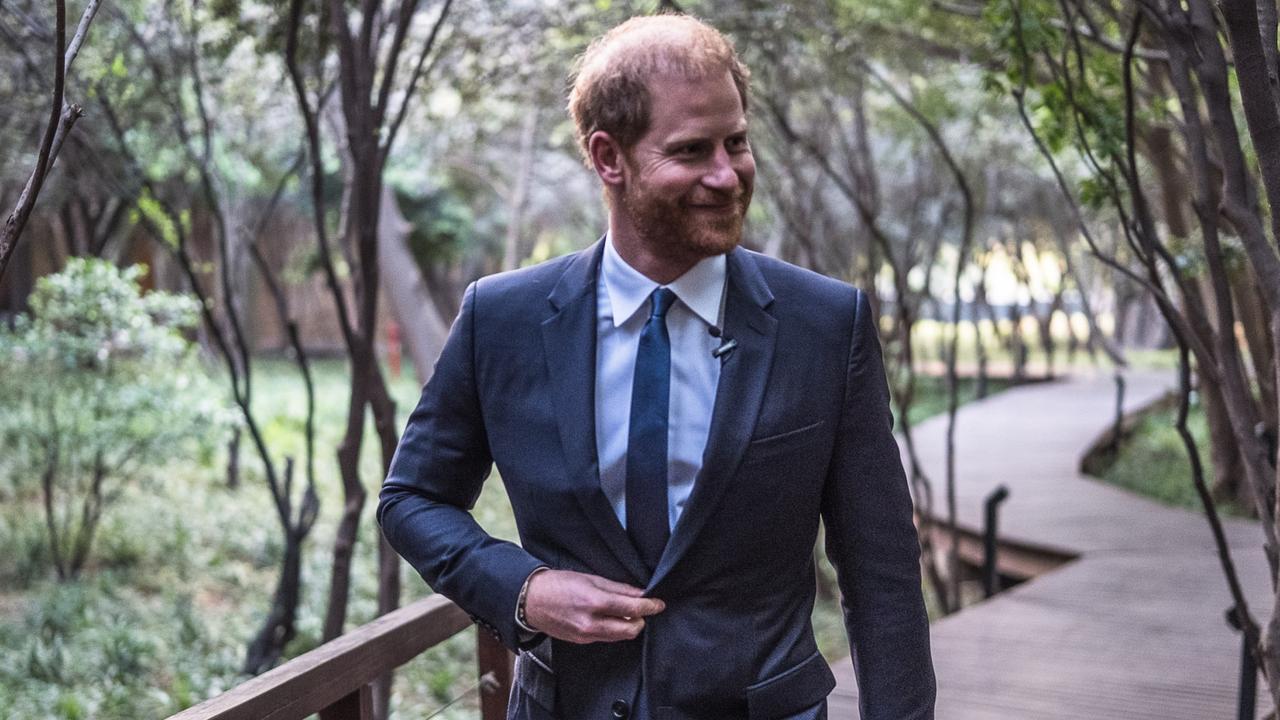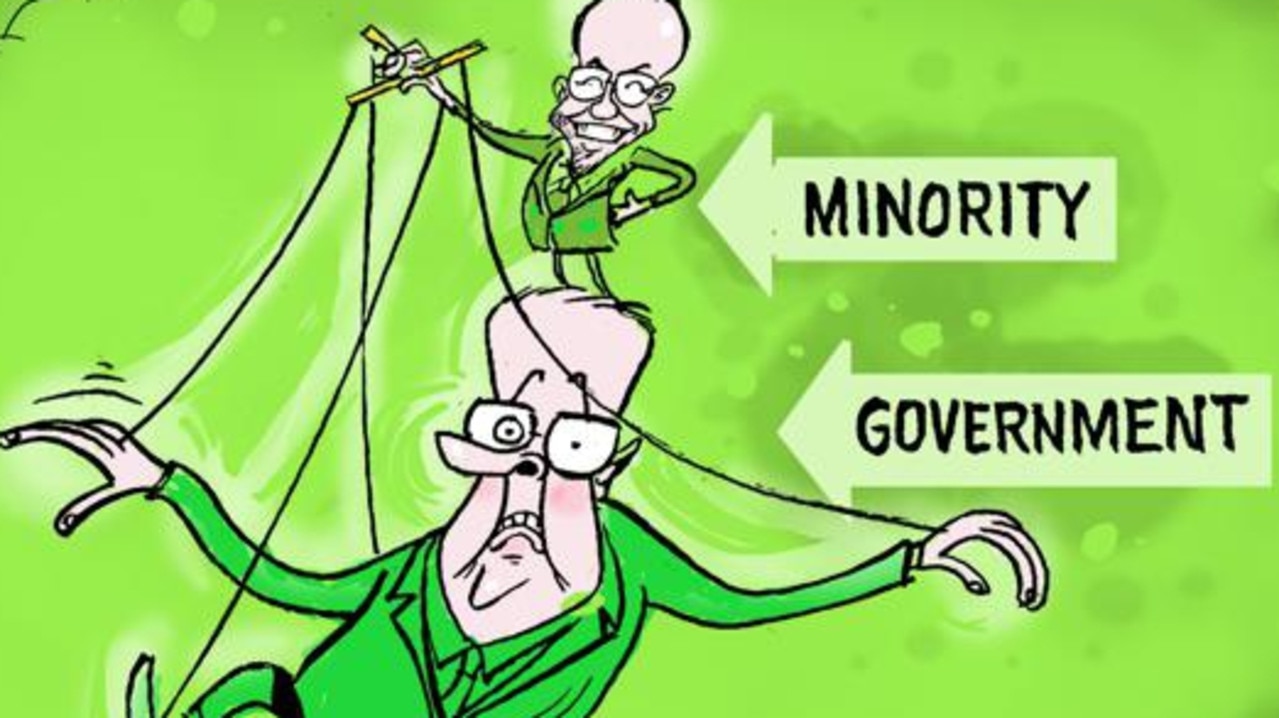Bevilacqua: Tradies and snobs
There’s a fallacy spreading the nation that job snobs are turning up their noses at apprenticeships in favour of university studies, and this elitism is causing a nationwide shortage of tradies.

Opinion
Don't miss out on the headlines from Opinion. Followed categories will be added to My News.
THERE’S a fallacy spreading the nation that job snobs are turning up their noses at apprenticeships in favour of university studies, and this elitism is causing a nationwide shortage of tradies.
This mythology, being spread far and wide, suggests many of the young Australians choosing university over the trades are studying hifalutin subjects of benefit to no one.
It’s a dangerous and loaded narrative that needs unpacking.
Yes, there is a shortage of tradies. Tried to get one lately? It’s virtually impossible, with many Tasmanian tradies facing a backlog of six months or more of work and so flooded with job offers they can pick and choose. This supply and demand imbalance is causing prices to skyrocket.
The dearth of young tradies across the country is alarming. The number of apprenticeships and traineeships dropped 50 per cent over the past seven years in some places.
Capital cities have lost tradies at a shocking rate, with Sydney and Adelaide losing about 50 per cent; Melbourne and surrounds, more than 40 per cent; and Perth and its northern suburbs, 33 per cent.
The Housing Industry Association says there are substantial shortages of bricklayers, carpenters and tilers and the price of such skilled labour is rising fast. Others in high demand include plumbers, electricians, handymen, airconditioning technicians, appliance repairs and locksmiths.
From 2013 to 2017, the number of Tasmanian apprentices dropped from 9520 to 7575, a loss of nearly 2000 in four years. That’s astonishing.
The National Electrical and Communications Association recently said just one in three job vacancies for electricians in Tasmania can be filled.
However, before blaming job snobbery for the shortages, let’s first look at the image of tradies in Australian popular culture, where the reality is they are celebrated and elevated in society like never before.
Prime-time TV worships young builders on shows such as The Block, where presenter Scott Cam has created a much-loved irreverent knockabout Aussie persona.
I have friends, women and men, who go weak at the knees at a buff tradie in a pair of bib and brace overalls with a leather tool belt slung low on the hips like a gun holster.
The last time I looked at the nightly TV soapies, the romantic leads were posing, after a hard day on the tools, in their Blunnies, thighs literally bursting from Stubbies shorts and bulging biceps rippling from singlets. And Kylie Minogue was hardly unattractive as Charlene the mechanic in Neighbours.
The image of tradies is so revered in Aussie pop culture, the Prime Minister assumed the pose through last year’s election campaign, taking on a Scott Cam-type personality and accepting any opportunity to sip on a tradie’s drink of choice, an icy cold draught.
It is no coincidence the PM is so big on “pub tests”. You won’t see him evaluate policy decisions while dining alfresco in a posh inner-city restaurant. It would not fit the requisite worksite foreman image.
The PM has now hired Cam to spruik apprenticeships in the hope some of the TV actor’s larrikin charm rubs off.
Tradies are very well paid and enjoy a privileged place in our society, a mere rung below firefighters. Those brickies and plumbers who also volunteer to get sweaty with a hose on the fire front are venerated like saints in the Vatican.
Sorry, but uni graduates do not have the pop culture cachet of a tradie. You won’t win friends by conducting a pub test on Durkheim’s anomie theory or by critiquing Seurat’s deft use of the brush or by celebrating the logic of Wittgenstein’s mathematical philosophy in the bars ScoMo visited during the campaign.
So, from where did this errant idea of job snobbery, in which a uni graduate is deemed more arresting and regarded than a tradie, arise?
I found references to a survey done a few years back in which some respondents suggested uni was more highly rated, but that’s about it. Hardly a water tight case.
MORE NEWS:
So, why is this wives’ tale being circulated so widely and persistently when it is clearly wrong? Could it be a decoy to steal attention from the fact our TAFE training and apprentice system is in woeful disarray due to suffocating underfunding?
Many believe that opening the vocational education sector to private providers in recent years has harpooned the TAFE system. This privatisation by stealth is, they say, dominated by private operators running profitmaking high-fee courses and leaving expensive-to-run trade courses to a TAFE system that is increasingly short staffed and overrun by demand.
I’m not philosophically opposed to such privatisation, but there is no place for pretending everything is rosy when it’s not. The number of TAFEs has been slashed nationwide and those that remain are falling behind industry practices, meaning students graduate without the necessary skills for the job.
The tradies shortage has more to do with a shambolic training sector than job snobbery, which is a red herring designed to appeal to historic class frictions that can arise after a few cleansing ales in the back bar at any local.


